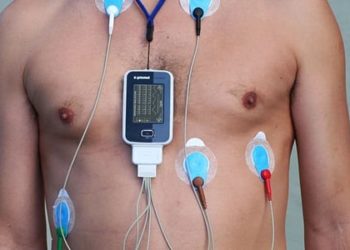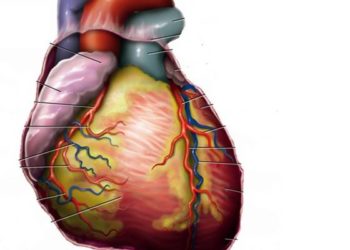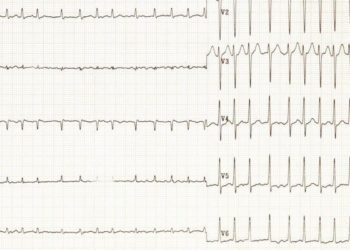NSAIDs linked with serious bleeding in afib patients
1. In patients with atrial fibrillation, the use of non-steroidal anti-inflammatory along with antithrombotic therapy (i.e., antiplatelets or anticoagulants) was associated with increased bleeding and thromboembolic events.
Evidence Rating Level: 2 (Good)
Study Rundown: Atrial fibrillation (AF) is an arrhythmia that markedly increases the risk for thromboembolic stroke. To mitigate this risk, patients are started on an oral anticoagulant (OAC), an antiplatelet, or a combined regimen. While these drugs effectively reduce the risk of stroke, they may increase the risk for serious bleeding events. Many patients with AF take non-steroidal anti-inflammatory drugs (NSAIDs) concomitantly with these antithrombotic medications, but it is unclear if NSAIDs further increase the risk of bleeding. This study, which examined data collected from Denmark’s National Patient and Prescription Registries, found that use of NSAIDs for 14 days was associated with increased risks of both serious bleeding and thromboembolic events across all anti-thrombotic treatment regimens. Among all serious bleeding events that occurred, most were either gastrointestinal or intracranial. This study was limited in that it did not account for treatment discrepancies among patients with comorbid conditions, such as hypertension. The authors also did not account for several potential confounders, including smoking status, BMI, and INR. Due to the observational nature of this study, no causal link can be established between NSAIDs and bleeding risk at this time, but clinicians should still consider such risks when prescribing NSAIDs to patients with AF.
Click to read the study today in the Annals of Internal Medicine
Relevant Reading: Use and Associated Risks of Concomitant Aspirin Therapy With Oral Anticoagulation in Patients With Atrial Fibrillation
In-Depth [retrospective cohort]: Denmark’s National Patient Registry was searched to find all patients ≥30 years of age with a first-time diagnosis of AF between 1997 and 2011. Their antithrombotic regimens were confirmed via the National Prescription Registry, and these were classified as single antiplatelet therapy (i.e., aspirin or clopidogrel), monotherapy with OACs, or dual therapy. NSAIDs were classified based on their specificity. Rofecoxib and celecoxib were designated “selective COX-2 inhibitors,” while ibuprofen, diclofenac, and naproxen were designated as “non-selective NSAIDs,” and all others were labeled “other NSAIDs.” Based on Cox regression models, the hazard ratios (HRs) for serious bleeding and thromboembolism with NSAID treatment were 2.27 (95%CI 2.15-2.40) and 1.36 (95%CI 1.27-1.45), respectively. Of the serious bleeding events, 38.7% were gastrointestinal and 18.9% were intracranial, and the HRs for gastrointestinal and intracranial bleeding were 3.54 (95%CI 3.29-3.82) and 1.22 (95%CI 1.03-1.44), respectively. The risks for bleeding and thromboembolism were increased regardless of age, sex, year of inclusion, antithrombotic treatment regimen or NSAID type.
More from this author: Genetic, environmental risk assessment does not increase colon cancer screening, Financial conflicts of interest bias recommendations for influenza meds, USPSTF recommends counseling for patients at high-risk for STIs, USPSTF recommends aspirin for women at risk for preeclampsia, Marked decline in cystic fibrosis-related mortality over 10 years
Image: PD
©2014 2 Minute Medicine, Inc. All rights reserved. No works may be reproduced without expressed written consent from 2 Minute Medicine, Inc. No article should be construed as medical advice and is not intended as such by the authors, editors, staff or by 2 Minute Medicine, Inc.







